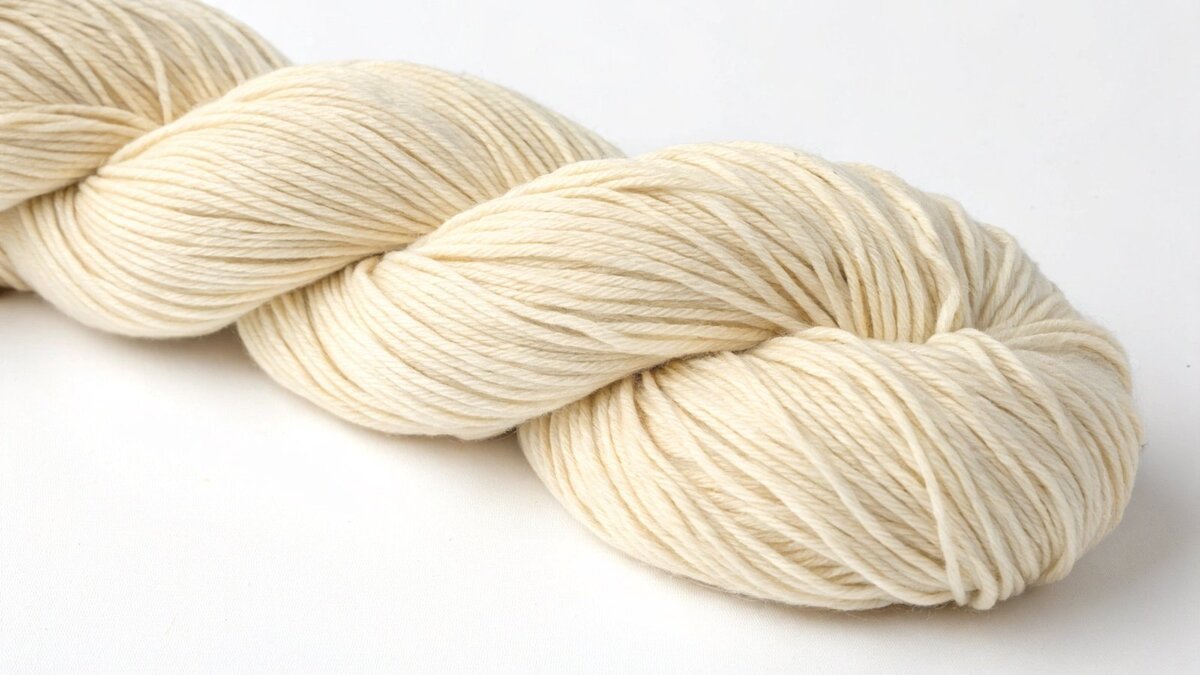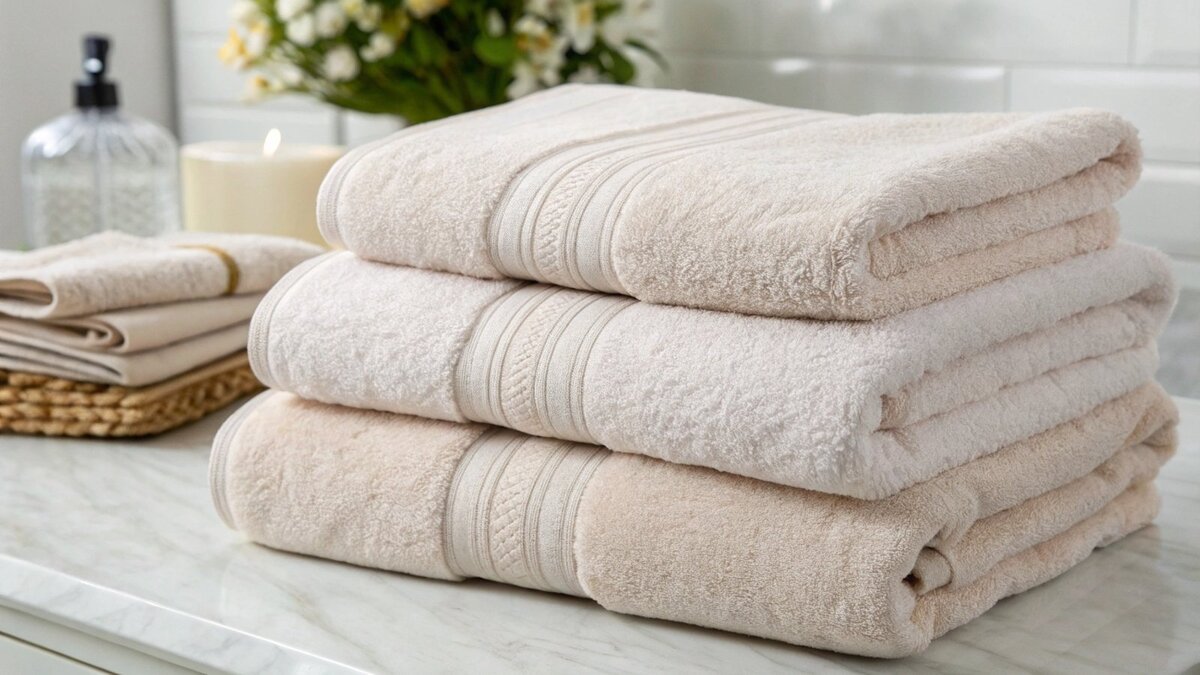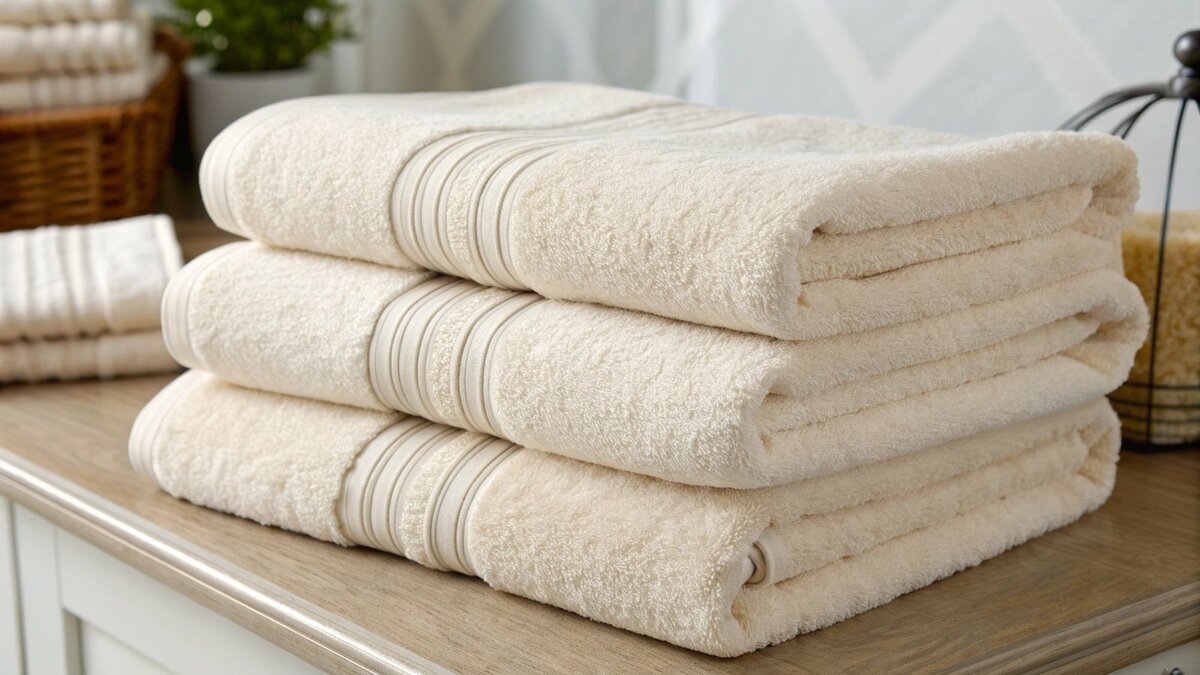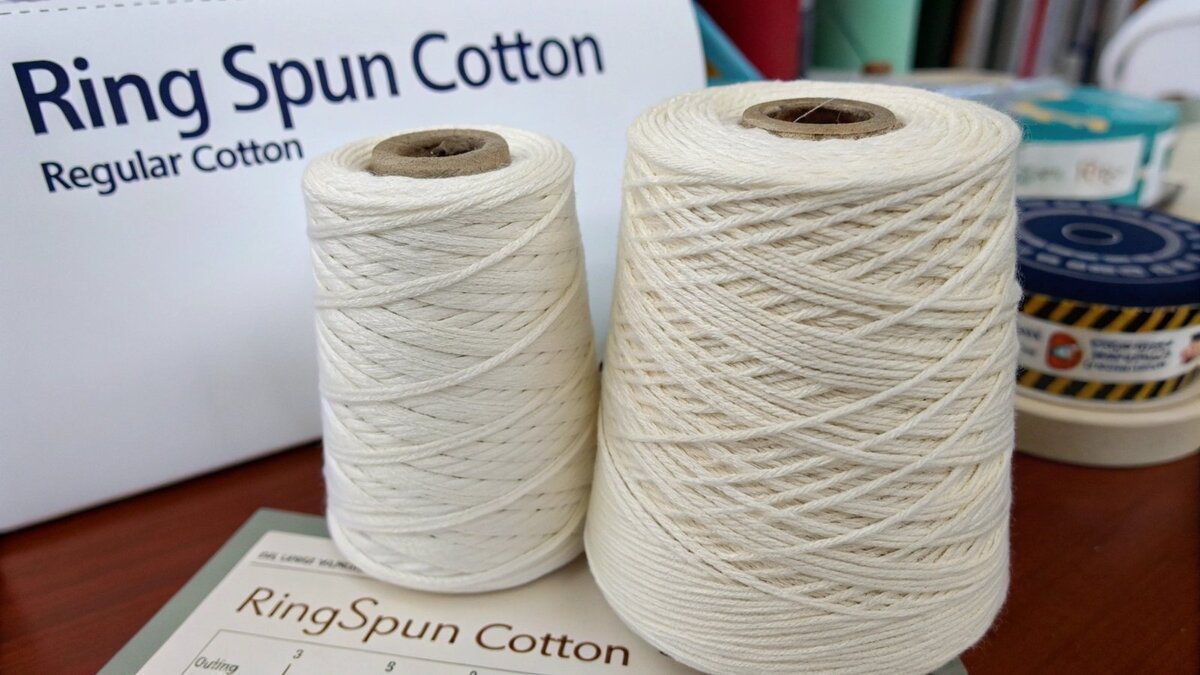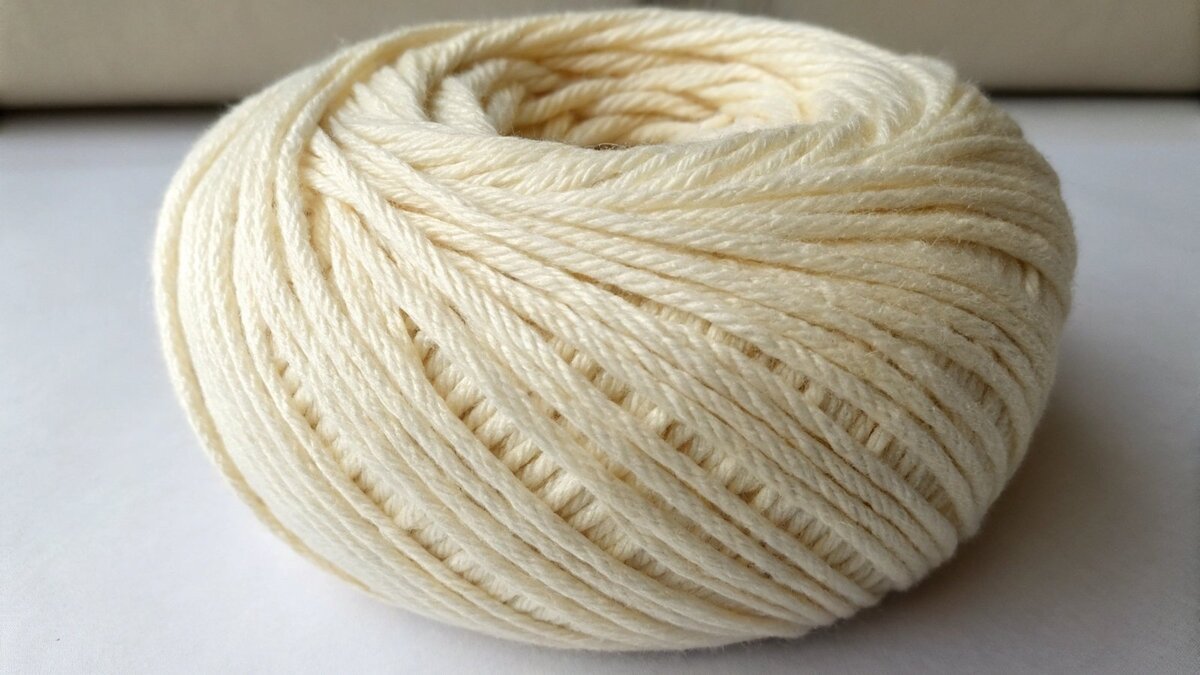Choosing the right cotton feels overwhelming. Pick the wrong type, and you get scratchy, weak towels that damage your brand. Understanding key terms like "ring-spun" is the first step.
Ring-spun cotton is a premium yarn made by continuously twisting and thinning cotton strands. This process creates a fabric that is significantly softer, stronger, and more durable than regular cotton, making it ideal for high-quality towels and apparel your customers will love.
Now that you know the basics, you’re probably wondering how it really performs. Is it worth the extra cost? Is it heavy or good for summer? These are the exact questions I help clients answer every day. Let’s break down what makes this material special so you can decide if it’s the right fit for your brand’s next product line.
Is Ring Spun Cotton Better Than Regular Cotton?
You see "100% Cotton" on labels everywhere, but the quality varies wildly. Your customers can feel the difference, and it directly impacts their loyalty to your brand.
Yes, for products where feel and durability matter, ring-spun cotton is much better. The manufacturing process creates a smoother, finer yarn that feels softer on the skin and holds up longer to washing than the yarn used for regular cotton products.
The Manufacturing Process Makes All the Difference
To really get it, you have to understand how the two types of yarn are made. The difference in the final product starts right at the spinning stage. Regular cotton, often called open-end cotton, is made using a fast and inexpensive process. Raw cotton fibers are essentially blown into a centrifuge and spun into yarn. It’s efficient, but it results in a fuzzy, uneven yarn with fibers sticking out in all directions. This is what gives regular cotton a coarser feel and makes it prone to pilling and thinning over time.
Ring-spinning, on the other hand, is a much more refined process. The cotton fibers are first straightened and aligned into a uniform rope. Then, this rope is continuously twisted and thinned, a process that takes much longer but creates an incredibly smooth, fine, and strong yarn. This method ensures all the fibers are tightly bound and facing the same direction.
At TowelTrend, I’ve seen this difference firsthand for years. A client once brought me a sample from another factory, complaining about customer returns. The towel was made from open-end cotton. After just five washes in our lab, it was already pilling and felt noticeably rougher. For brands that want to build a reputation for quality, ring-spun is the only way to go. Your customers will feel the premium difference instantly.
| Feature | Ring-Spun Cotton | Regular (Open-End) Cotton |
|---|---|---|
| Feel | Exceptionally soft, smooth | Rougher, can feel scratchy |
| Durability | Stronger, more resilient | Weaker, prone to tearing |
| Pilling | Less likely to pill | Pills easily after washing |
| Cost | Higher | Lower |
| Process | Slower, more refined | Faster, more cost-effective |
Is Ring-Spun Cotton Heavy?
You want to offer a luxurious product, but worry "premium" means bulky and slow-drying. A heavy towel that stays damp is impractical and a bad customer experience.
Not necessarily. Ring-spun cotton refers to the yarn’s quality and softness, not its weight. The weight of a towel is actually determined by its Grams per Square Meter (GSM), a separate measurement. You can have lightweight or heavyweight ring-spun towels.
Understanding GSM: The True Measure of Weight
When clients ask me for a "heavy" or "light" towel, I always steer the conversation toward GSM. This industry-standard measurement tells you the density of the fabric. A higher GSM number means the towel is thicker, plusher, and more absorbent because more cotton yarn is packed into each square meter. A lower GSM means the towel is lighter, thinner, and will dry faster.
The magic of ring-spun cotton is its versatility across this spectrum. I can work with a brand to produce a lightweight 400 GSM gym towel that feels incredibly soft because of the ring-spun yarn, not scratchy and cheap. At the same time, we can create a super-plush 700 GSM bath sheet that offers the ultimate hotel-luxury experience. In both cases, the ring-spun process provides the softness and durability. The GSM dictates the weight and absorbency. So, when planning your product, don’t confuse the yarn type with the final weight. Think about the end-use first, then choose a GSM and specify ring-spun yarn for that premium feel.
| GSM Range | Towel Type & Use Case | Characteristics |
|---|---|---|
| 300-400 GSM | Lightweight, Quick-Dry | Ideal for gym bags, travel, or kitchen use. |
| 400-600 GSM | Standard Everyday Towel | A great balance of softness, absorbency, and weight for home use. |
| 600-900 GSM | Luxury, Hotel-Quality | Very heavy, plush, and highly absorbent for a premium experience. |
Is Ring Spun Cotton Expensive?
Your budget is tight, and you’re trying to balance product quality against manufacturing costs. But choosing the cheapest option can hurt your brand and cost more in the long run.
Yes, ring-spun cotton is more expensive to produce than regular cotton. The slower, more complex spinning process requires more time and energy, which increases the final cost of the yarn and the finished product.
Cost vs. Value: An Investment in Your Brand
The higher price tag on ring-spun cotton is a direct result of the more intensive manufacturing process. It simply takes longer to make a smoother, stronger yarn. The process also generates more waste by combing out shorter, weaker fibers. These factors combine to increase the unit cost, often by around 15-20% compared to open-end cotton.
However, when I consult with new brands, I encourage them to think about cost-per-use and long-term brand value. A cheaper, open-end cotton towel may save you money on your initial purchase order, but it won’t last as long. After repeated washes, it will feel rough and look worn. This leads to poor reviews and discourages repeat purchases. In contrast, a ring-spun cotton towel maintains its softness and integrity, delivering a consistently positive experience for your customer. They remember that quality.
Think of it not as an expense, but as an investment. That slight increase in upfront cost builds a reputation for quality that pays for itself through customer loyalty and positive word-of-mouth. A cheap towel falls apart; a quality towel builds your brand.
| Factor | Regular Cotton | Ring-Spun Cotton |
|---|---|---|
| Upfront Cost | Lower | Higher (~15-20%) |
| Manufacturing Time | Faster | Slower |
| Product Lifespan | Shorter | Longer |
| Customer Perception | Basic, Standard | Premium, Luxurious |
| Long-Term Value | Lower | Higher |
Is Spun Cotton Fabric Good for Summer?
Summer products must be breathable and comfortable in the heat. The wrong fabric feels heavy and clammy, trapping heat and making your customers uncomfortable and unhappy with their purchase.
Yes, ring-spun cotton is fantastic for summer, especially when made into a lighter-weight fabric. Its fine, smooth yarns can be woven into breathable textiles that feel soft and effectively wick moisture away.
Weave and Weight: The Keys to Summer Comfort
The suitability of ring-spun cotton for summer comes down to two things: the weight (GSM) and the weave. Just because the yarn is premium doesn’t mean the fabric has to be heavy. For warm-weather products, the goal is to use that soft, strong yarn to create something light and airy.
For our clients creating beach towels, we often recommend a ring-spun cotton in the 400-500 GSM range. This provides enough absorbency for after a swim without being overly heavy or taking forever to dry in the sun. We can also adjust the weave, using a slightly shorter terry loop pile that feels plush but won’t trap as much sand or heat. I recently worked with a client from Australia on a line of beach towels for their summer season. We settled on a 450 GSM ring-spun cotton design, and it was a huge success. The towels had that luxurious softness customers expect from a premium brand but were practical enough for a day at the beach. It proves that with the right specifications, ring-spun cotton is incredibly versatile for any season.
Conclusion
Ring-spun cotton is a softer, stronger, and more durable yarn. It is a worthwhile investment for any brand focused on building a reputation for high quality and customer satisfaction.

